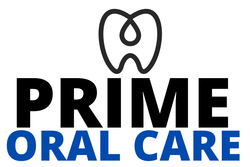
As one of the most common dental problems globally, gum disease or periodontal disease can also cause harmful effects on your health. It begins mild, but over time can escalate dental issues if it goes untreated. Knowing the signs of gum disease — and how to prevent it — can spare those pearly whites from pain and devastation. In this blog, we are going to go through the symptoms of gum disease, how it develops and some practical tips to keep your gums more healthy. In the process, we will cover common symptoms such as stink breath (halitosis), teeth pain and other symptoms of dental disease.

What Is Gum Disease?
Gum disease is an inflammation of the gums and tissues that support the teeth. It is caused by plaque — a sticky film of bacteria that develop on teeth and gums. If plaque is not brushed and flossed away, it becomes hardened and turns into tartar; only a dentist can remove tartar. Gum disease usually develops in stages:
Gingivitis
The first stage features swollen, inflamed and irritated gums. Periodontitis: An advanced stage in which the infection spreads, resulting in gum recession, bone loss, and teeth pain. Severe (Advanced) Periodontitis: The most severe stage and may result in significant damage that can lead to tooth loss. Signs of Gum Disease This is very important, because getting gum disease in the early stages is key to preventing it from progressing and becoming more serious. Here are the signals to look out for:
-
Gums that are red, swollen, or bleeding Healthy gums should be firm and pink. If your gums look red, puffy or you see them bleeding when you have a brush or when you floss, it’s a sure sign of gingivitis, the first stage of gum disease.
-
Underwater Stink Breath : (Stink Breath) Bacteria build up in the mouth and create foul smelling odor. Bad breath that lingers even after brushing a sign of gum disease or other dental problems.
-
Gum Recession :As the gum disease progresses, the gums start pulling away from the teeth, causing them to appear longer than normal. Gum recession results in gaps where bacteria thrive, exacerbating the compromise.
-
Teeth Pain or Sensitivity: If you’re feeling teeth pain or sensitivity when you eat, drink or brush, it might be a sign of underlying gum damage or infection.
-
Loose or Shifting Teeth: In its more advanced stage, gum disease can damage the supportive bone and tissue, resulting in loose teeth or changes in the bite alignment.
-
Development of Pockets Between Gums and Teeth : In periodontitis, the gums pull away from the teeth, creating pockets. These pockets can house food particles and bacteria, making the infection worse.
-
Pus Around the Gums : The presence of pus or discharge in the space between the teeth and gums can indicate the presence of an active infection and requires immediate attention. The Bad Links Between Gum Disease And Overall Health Gum disease isn’t only a dental problem — it can have wide-ranging effects on your overall health. It’s tied to range of conditions, including: Heart disease: Bacteria from gum infections can enter the bloodstream and affect the heart. Diabetes: Gum disease can make it more difficult to control blood sugar levels, and the reverse is also true. “Respiratory Issues: Mouth bacteria can enter the lungs and cause an infection. Pregnancy Complications: Women with periodontal disease have a greater chance of pre-term delivery and low-birth-weight delivery.
-
How to Prevent Gum Disease : The Silver Lining: With proper oral care and lifestyle habits, gum disease is largely preventable. Here’s what you can do to keep your gums healthy and prevent stink breath, teeth pain and other dental diseases:
-
Brush and Floss Daily :Brushing your teeth twice a day and flossing once a day are the basics of good oral hygiene. Brush your teeth and gums gently with fluoride toothpaste and a soft-bristled toothbrush. Flossing clears out food particles and plaque from between your teeth that your toothbrush can’t reach.
-
Use Antibacterial Mouthwash : Using an antimicrobial mouthwash may help reduce the bacteria in your mouth and freshen your breath. Choose a product designed for plaque and gingivitis prevention.
-
Stay Up to Date on Dental Exams:You should be visiting your dentist at least bi-annually for cleanings and check-ups. Routine cleanings get rid of tartar and enable your dentist to detect early signs of gum disease before it takes hold.
-
Eat a Healthy Diet :A well-rounded diet full of vitamins and minerals is good for gum health. To that end, foods high in vitamin C (think oranges, strawberries) can boost gums' strength, and foods high in calcium (such as cheese and yogurt) support healthy teeth and bones.
-
Stay Hydrated : Water also washes away food particles and bacteria, helping prevent plaque from forming. It also fights dry mouth, which can lead to stink breath.
-
Avoid Tobacco Products: Smoking and using other tobacco products increases your risk for gum disease and can make it more difficult for your gums to heal. Giving up smoking is one of the best things you can do for your oral and general health.
-
Manage Chronic stress can lower your immune system, leaving your body in jeopardy to gum infections. Stay fit by practicing stress-relieving activities like exercise, meditation and yoga.
Home Remedies for Gum Health : Although professional care is necessary, you may also try these natural home remedies to help support gum health:
Saltwater Rinse: Use warm saltwater to gargle, which helps reduce inflammation and kill bacteria.
Oil Pulling: Swish coconut or sesame oil in your mouth for 15-20 minutes to remove toxins and bacteria.
Aloe Vera Gel: Using aloe vera gel on your gums may have soothing and anti-inflammatory effects.
Green Tea: Consuming green tea on a regular basis helps in the reduction of gum inflammation and fight bacteria.
When to See a Dentist
If you notice any signs of gum disease, for example persistent stink breath, teeth pain or bleeding gums, don’t delay contacting a dentist. Early intervention can stop the progression of the condition.
Your dentist may suggest treatments such as:
Deep Cleaning: For plaque and tartar removal. What manipulative treatment was performed?
Scaling and root planing.
Antibiotic Therapy : To control infection and inflammation.
Cosmetic Procedures
Surgery: In cases of severe gum disease, a surgeon may be needed for gum grafting or pocket reduction surgery.
Conclusion
Gum disease, is a serious dental disease which can lead to immense pain and health complications if not treated. Yet with good oral hygiene, a healthy lifestyle and early detection, it’s fully preventable. Gum disease can be stopped at its early stages through observation signs such as stink breath, teeth pain and bleeding gums making sure you protect your oral health. After all, a healthy smile is well worth it—start taking care of your gums now for a happier you tomorrow! Now you can control your oral health. Your gums will thank you!
